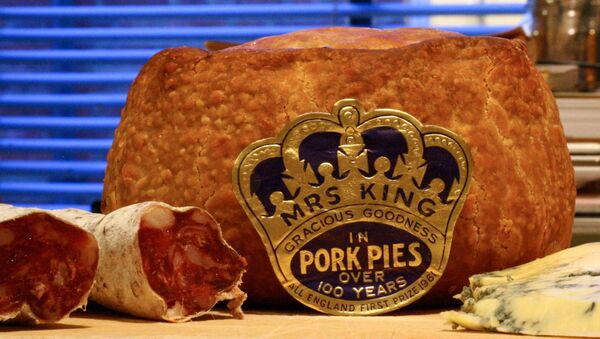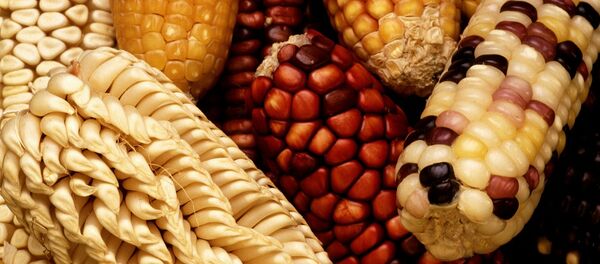The TTIP negotiations, which have been going on for years amid claims of secrecy and lobbying by big business, are designed to create the biggest free trade area in the world between the EU and the US. Sources have told Sputnik that the stumbling block has been over the detail of regulatory difference between the US and the EU. None is more important than food and farming — affecting what people put in their mouths.
It's official: The 13th #TTIP Negotiation Round is happening in New York, United States, from 25–29 April 2016. pic.twitter.com/XYN9JSAQqi
— EU TTIP Team (@EU_TTIP_team) 12 April 2016
Food regulations in the EU and the US are different, with the EU being less open to genetic modification that the US. In order to have a trade agreement, the two sides need to agree on a common regulatory framework.
However, the EU currently excludes beef and pork treated with growth hormones, chicken washed in chlorine, fruit and vegetables treated with endocrine-disrupting pesticides and genetically engineered and modified foods, all of which are common in the US.
Pork Pies?
Meanwhile, there are fears that locally protected foodstuff in the EU — such as Parma ham, Feta cheese, Champagne, Melton Mowbray pork pies and Stilton cheese — may be the subject of legal action. Under the TTIP, any restrictions on US foodmakers importing their versions into the EU, could lead to the producer taking action against the EU or member state governments.
#TTIP State of Play report just published-Find out where we stand in all the different areas https://t.co/e0TDhfqhaW pic.twitter.com/aHDE1Ii6OG
— European Commission (@EU_Commission) 27 April 2016
That would trigger the controversial Investor-State Dispute Settlement (ISDS) mechanism, which critics say is a controversial trade tribunal system, separate from EU member states judiciary systems. Similar cases have involved tobacco giant Philip Morris suing Australia for introducing plain packaging on cigarettes and Uruguay for printing a health warning on cigarette packets.
According to US sources, the current protection of EU foodstuffs has led to a US$12 billion annual food trade deficit with the EU, US$ 1 billion of which is in cheese alone. The negotiating teams are now under pressure to reach agreement over the deal, which US President Obama wants signed before he leaves office in January 2017.
Why #TTIP will be a bad deal for EU #farming. Our NEW REPORT: https://t.co/E14ia5R73s pic.twitter.com/13FGemNwca
— Friends of the Earth (@foeeurope) April 28, 2016
Suggestions that the trade deal could be quickly wrapped by settling for a limited Transatlantic free trade deal that ignores deep divisions on agricultural products and other matters, including the ISDS mechanism, have been refuted.
"We are not going to shoot for or accept a 'TTIP light.' It has to be comprehensive, it has to be ambitious and we do think we have the time that we need this year to complete such an ambitious deal," a US trade representative official told Reuters on condition of anonymity because of the sensitivity of the talks.



